“Higher education means you won’t get dementia”—it sounds reassuring, but the science is more nuanced. This article explains, in clear language, what a large multi-country longitudinal study actually found about education, memory decline, and brain aging.
Key Takeaways
- Higher education is linked to a higher level of memory performance at baseline.
- But the rate of age-related decline is about the same across education groups.
- Early-life environment and individual differences likely shape both education and brain outcomes.
1. Myths vs Facts
Myths
- “More education = slower brain aging.”
- “College protects you from dementia.”
Facts
- Education relates to a higher level, but similar decline slopes.
- Education matters, yet lifestyle, health care, and social engagement drive prevention.
Glossary: “Cognitive reserve” is the brain’s capacity to tolerate damage with fewer symptoms. In this re-analysis, there was no clear evidence that more years of education strengthened this reserve.
2. What Did the Study Actually Do?
- Who: Adults 50+ from 33 countries, with repeated memory tests over time; a subset had longitudinal brain MRI.
- What: The long-term slope of memory change and its relation to education.
- How to read it: Distinguish between level and rate of decline. Practice (“re-test”) effects were statistically addressed.
3. One-Glance Summary
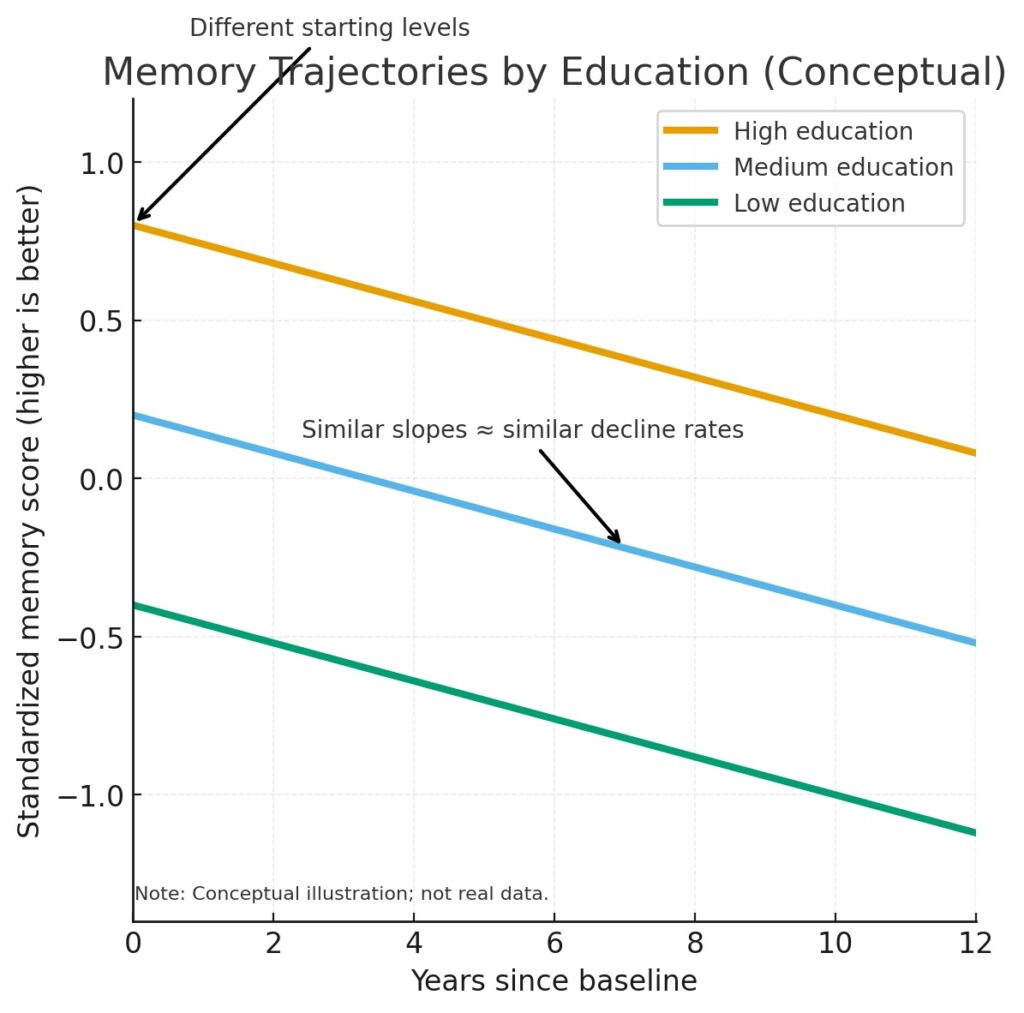
Conceptual Trajectories of Memory by Education Level
Y = Standardized Memory Score (higher is better) / X = Years Since Baseline
4. Why Education Isn’t the Decisive “Anti-Aging” Lever
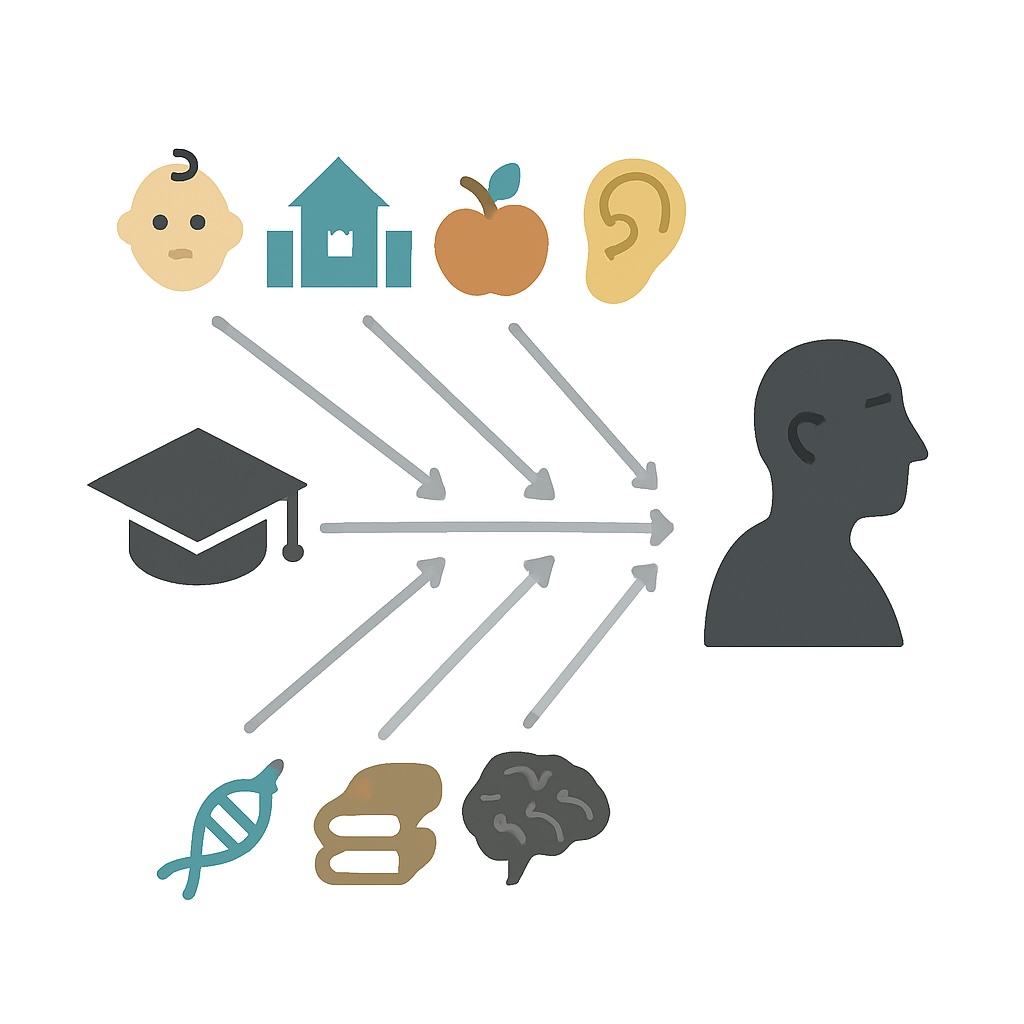
Associations between education and cognition/brain reflect, in part, pre-existing differences and early-life environments (nutrition, health, stimulation, family/community support). Thus, years of education per se may not change the speed of age-related decline. Still, education brings broad benefits—income, health literacy, access to information, and social capital—that indirectly support brain health.
5. What Actually Helps Slow Cognitive Aging? (Actionable)
- Physical activity: Aim for 150 minutes/week aerobic + 2 sessions of resistance training. Frequency beats perfection.
- Sleep: 7–8 hours; cue circadian rhythm (e.g., warm bath ~90 min before bed, morning light).
- Diet: Mediterranean-leaning; go easy on ultra-processed foods; moderate alcohol.
- Social & intellectual engagement: Talk to people; try new learning with novelty and continuity (languages, music, dance, coding).
- Medical care: Manage modifiable risks—hypertension, diabetes, hearing loss—proactively.
Mini Checklist
- Did you hit 150 minutes of movement this week?
- Are bed/wake times fairly consistent?
- Did you talk to someone new or learn something new?
- When was your last hearing check?
6. FAQ
Q. So is “higher education prevents dementia” a myth?
A. It’s an overstatement. There may be a lower risk on average, but it isn’t a decisive shield. Q. Does adult “re-learning” help?
A. Yes—especially when learning is novel and sustained. Daily habits beat credentials. Q. Does this mean children’s education doesn’t matter?
A. It matters a lot. Early-life environments build the foundation for lifelong cognition.
7. Summary (Takeaways)
- Education raises the level of performance, but the decline rate looks similar.
- Think “early, broad, long”: combine lifestyle, clinical care, and social participation.
- Start small: a 10-minute walk, a quick hearing check, a call to a friend.
8. References & Further Reading
- The re-analysis paper examining education, memory decline, and brain aging across multiple countries.(Reevaluating the Role of Education in Cognitive Decline and Brain Aging: Insights from Large-Scale Longitudinal Cohorts across 33 Countries)Jan 29, 2025, medRxiv.)
- General resources on dementia risk reduction, hearing health, and practical sleep/fitness guides.
Edited by the Morningglorysciences Team. | This article is for general information only and is not a substitute for medical advice.
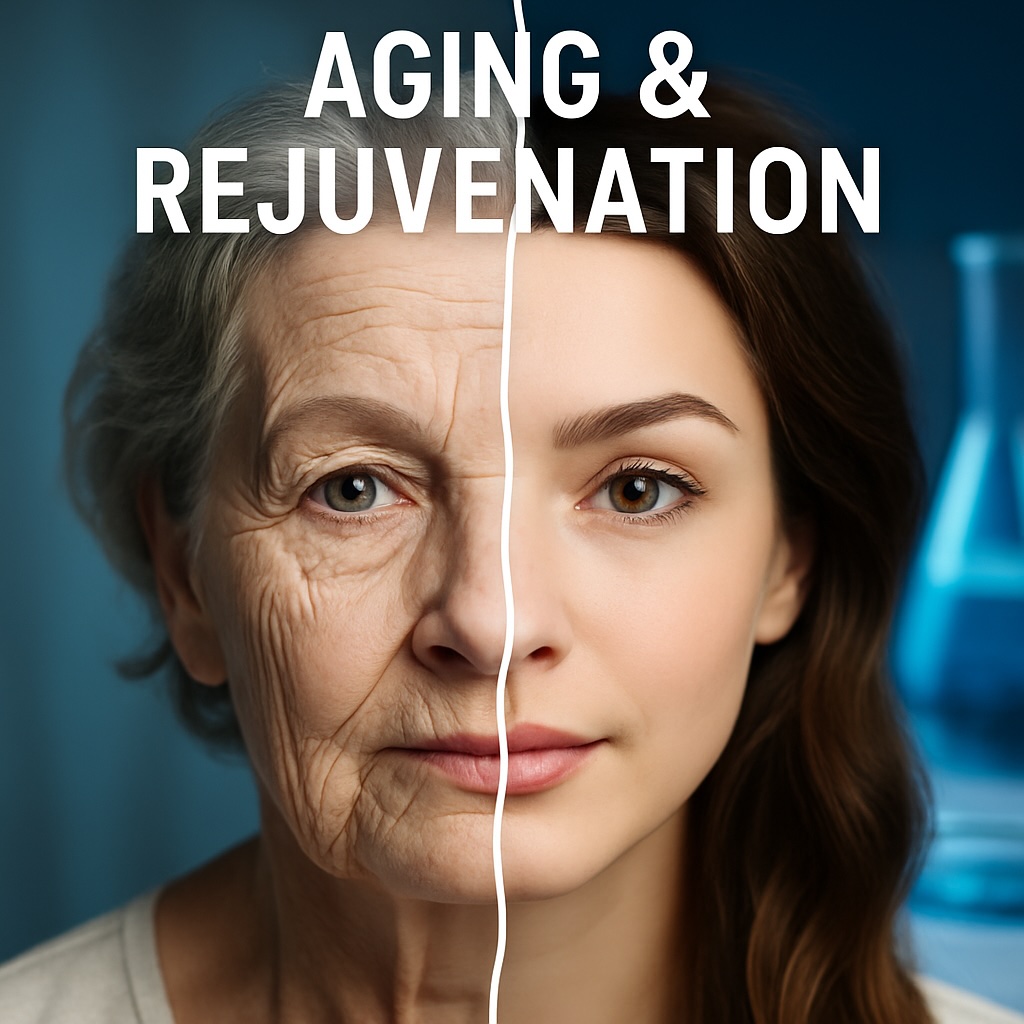
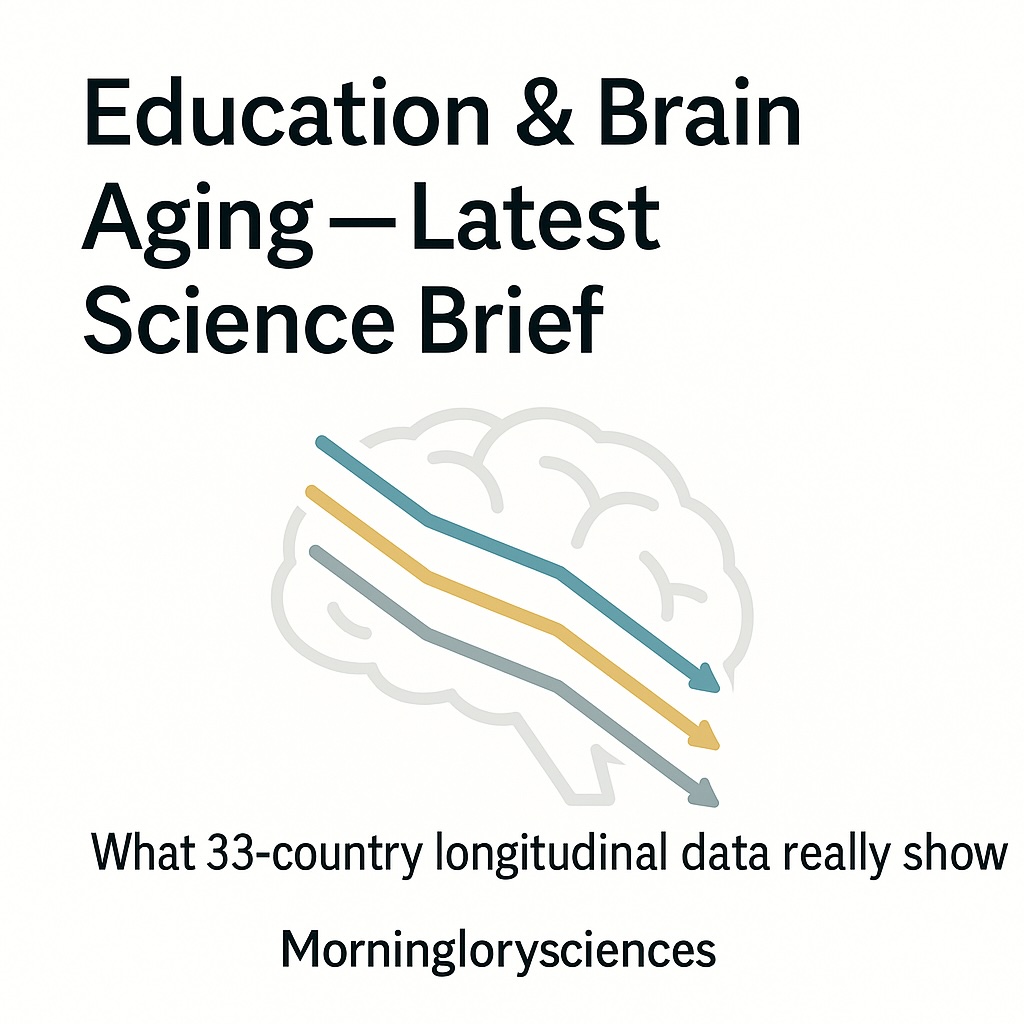
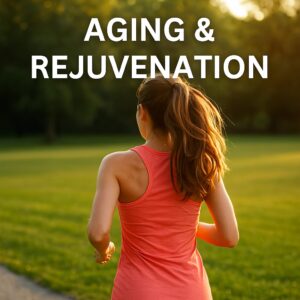
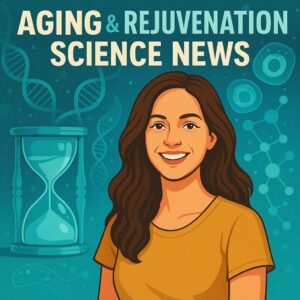

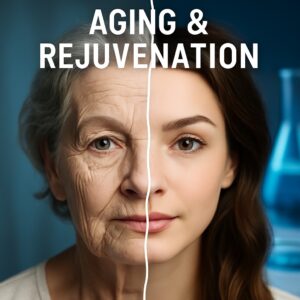
Comments